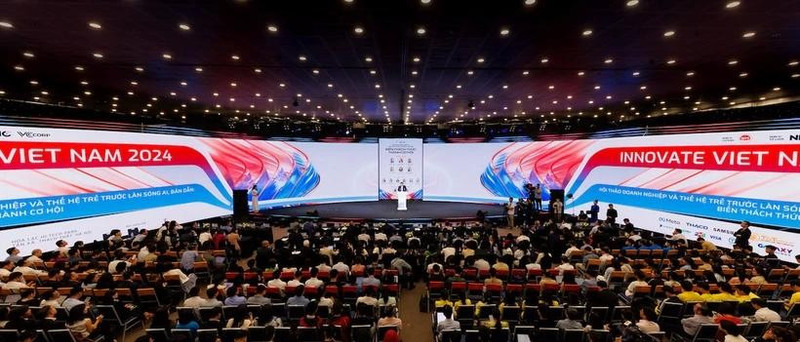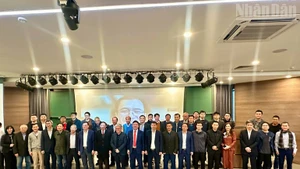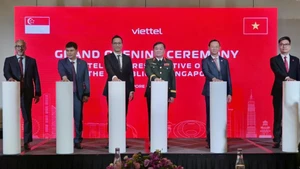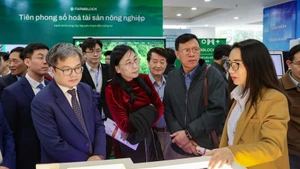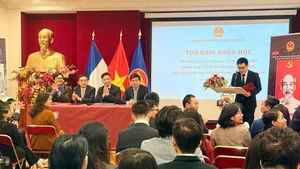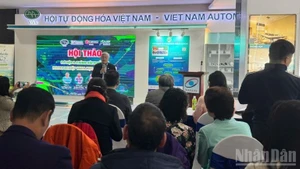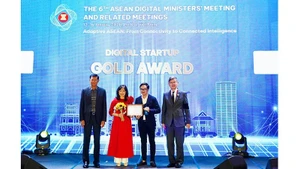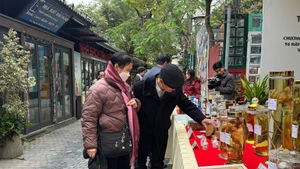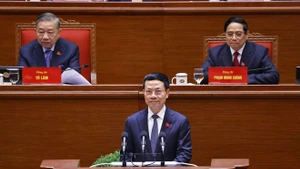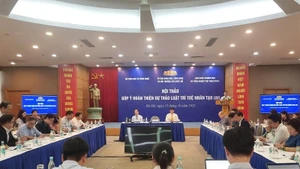Dung stressed that Vietnam's stable political system and strong commitment to hi-tech industries make it an attractive destination for investment. The country is focusing on driving digital transformation, green transition, science and technology, and innovation to achieve breakthroughs in productivity, quality, and economic competitiveness.
With a population of over 100 million people and a vibrant, enthusiastic youth generation skilled in sci-tech, engineering and mathematics, Vietnam is experiencing a golden demographic period, Dung added.
On September 21, the Prime Minister issued a national strategy for semiconductor industry development and a human resource development scheme for the industry until 2030, with orientations to 2050.
The Ministry of Planning and Investment (MPI) has proactively worked with relevant ministries, agencies, and domestic and foreign partners to enhance the training of a quality workforce for AI and semiconductor industries. The goal is to train 50,000 engineers by 2030.
So far, Vietnam has already established a large-scale semiconductor and AI ecosystem in the region, involving major players such as Google, Meta, NVIDIA, AMD, Qualcomm, Intel, Amkor, Hana Micron, LAM Research, Marvell, Cadence, Synopsys, Qorvo, Ampere, Infineon, and numerous other hi-tech companies in the electronics sector.
The country is progressively refining its investment policies and legal framework to create the most favourable business environment for semiconductor and AI companies. The Government will soon issue a decree on the establishment, use, and management of an investment support fund this year to facilitate investments in the field.
A National Steering Committee for the development of the semiconductor industry, chaired by the Prime Minister, was also established. Additionally, the National Innovation Centre (NIC) and three hi-tech zones in Ho Chi Minh City, Hanoi, and Da Nang are ready to welcome semiconductor investors with attractive incentives.
According to the minister, the US Government has selected Vietnam as one of the six countries globally to join its International Technology Security and Innovation Fund (ITSI). This initiative is part of the CHIPS and Science Act, which focuses on workforce training for semiconductor and AI industries.
In September, the MPI assigned the NIC to work closely with the US Department of State and Arizona State University to launch a programme in Vietnam aimed at training over 4,000 engineers in packaging and testing integrated circuits by the end of 2025. Additionally, Vietnam is actively partnering with Japan, the Republic of Korea, Europe, and Taiwan (China) to jointly develop human resources for and advance the semiconductor and AI industries.
Becky Fraser, Vice President of Global Government Affairs at Qualcomm, said Qualcomm’s innovation is focused on technology transfer and will continue to grow, particularly in technologies related to AI in the devices that Qualcomm has been working on in Vietnam.
